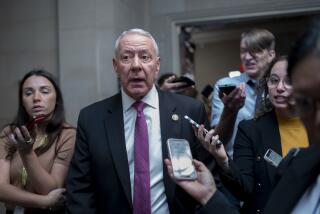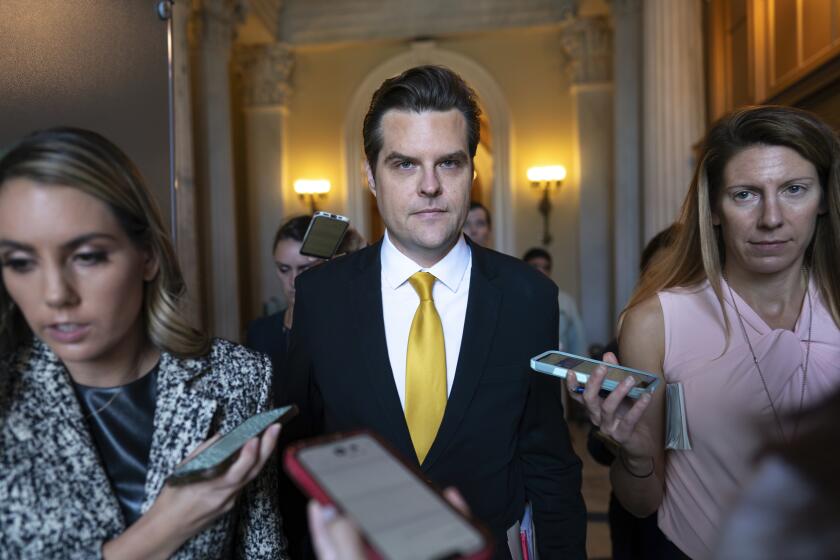Baucusâ exit drains hope for tax reform

This post has been updated, as indicated below.
Six-term Sen. Max Baucus (D-Mont.), the chairman of the Senate Finance Committee, announced Tuesday that he wonât run for reelection in 2014.
You may now kiss any hope of a sweeping tax reform bill goodbye.
Iâm not saying this out of any particular fandom for Baucus, although I think heâs a good guy. I just believe it will be too hard to overhaul the tax code with a lame-duck chairman of the Senateâs tax-writing committee.
Working with his counterpart in the House, Ways and Means Committee Chairman Dave Camp (R-Mich.), Baucus has spent much of the last two years laying the groundwork for a thorough rewrite. Their mutual goal: clearing out much of the complexity in tax law by eliminating many, if not most, of the rules that give special treatment to certain types of income and expenses. If Congress broadened the tax base by shielding fewer earnings from the IRS, it could lower tax rates and still collect the same amount of revenue (or more revenue, if Democrats prevailed on that point). Lower rates, in turn, would spur U.S. competitiveness and growth.
This kind of reform is devoutly to be wished. But it inevitably would cause some individuals and companies to pay more, while others would pay less. In other words, there would be winners and losers, and unless the former overwhelmed the latter, lawmakers would find it tough to sign on. The legislation would also face stiff resistance from companies whose business model or investment strategy was designed to take advantage of the current deductions, exemptions and credits, not to mention the accountants, auditors and others who have profited from the current complexity.
On the plus side, both President Obama and the House Republican leadership have called for an overhaul that curtails tax breaks, broadens the base and lowers rates. And as troublesome as the details might be, itâs easy to sketch the broad outlines of a simple but progressive tax system that would appeal to both parties.
On the minus side, thereâs no grass-roots ferment in favor of an overhaul. People donât like the tax system, but thereâs little urgency to this issue. By contrast, the public cried out for changes to the banking system after the housing bubble burst and Wall Street collapsed. Although few lawmakers were satisfied with the Dodd-Frank financial regulatory bill in 2010, they werenât willing to adjourn without passing something.
Under the circumstances, then, the only hope for overhauling the tax code is strong leadership that unites lawmakers behind a bold effort to simplify the code dramatically for the sake of the overall economy, even if that proves costly to some powerful constituents. That sort of leadership gave us the last real improvement in the tax code, the Tax Reform Act of 1986. The measure was pushed through by President Reagan, the redoubtable House Ways and Means Committee Chairman Dan Rostenkowski (D-Ill.) and the cerebral Senate Finance Committee Chairman Bill Bradley (D-N.J.).
All three were fully invested in the idea of broadening the tax base and lowering rates. That doesnât seem to be the case for Obama, at least not at this point. Camp could get a reform bill through the House, assuming the House GOP leadership remained supportive. But Baucus -- who was a top sponsor of the 2010 healthcare reform law, so he knows how to move complex, controversial legislation -- isnât feeling the love from Senate Democrats this year.
For example, his Democratic colleagues passed a budget resolution last month with revenue-raising provisions Baucus opposed. He argued, rightly but vainly, that the budgetâs call for tax increases would make it more difficult to do a comprehensive overhaul. And on Monday, Senate Majority Leader Harry Reid (D-Nev.) brought a tax bill directly to the floor without hearings or votes in Baucusâ committee. The measure, which Baucus opposes, would let states force Internet retailers to collect taxes on sales to their residents, even if the retailers had no physical presence there.
Now that Baucus has announced that heâs a short-timer, heâll have even less sway over his colleagues. Democrats can oppose him without worrying about him retaliating against their bills or amendments. And Republicans can hold out for a tax reform bill thatâs more to their liking, knowing that the chances of them taking control of the Senate in 2015 are incrementally better with Baucus not on the ballot in 2014.
[Updated, 12:55 p.m. April 23: Some Baucus allies and journalists argue that his decision not to run again will actually help tax reform efforts. Itâs certainly true that Baucus, relieved of the need to raise a huge campaign warchest, can spend more time building support for an overhaul. He also would be free to make politically difficult choices that could help the bill at the expense of special interests that are powerful in his home state. But Baucusâ liberation wonât make it any easier for his colleagues to support a bill that would be sure to draw fire from at least some of their own constituents.
In his announcement, Baucus pledged to keep plugging away at tax reform. âIâm not turning out to pasture because there is important work left to do, and I intend to spend the year and a half getting it done,â he declared. âOur country and our state face enormous challenges â- rising debt, a dysfunctional tax code, threats to our outdoor heritage, and the need for more good-paying jobs.... At a national level, I will continue to work on simplifying and improving the tax code, tackling the nationâs debt, pushing important job-creating trade agreements through the Senate, and implementing and expanding affordable health care for more Americans.â]
Thereâs a lot of time left before the 2014 elections, and lame-duck chairmen have pushed big bills through Congress before. See, for example, Sen. Chris Doddâs work in 2010 on the aforementioned Dodd-Frank act. But with no groundswell of public support for tax reform, the odds against an overhaul were long even before Baucus said he was heading for the exits. They seem impossibly long now.
ALSO:
A curriculum crunch for California
Reese Witherspoon, Al Michaels and the return of Prohibition
Follow Jon Healey on Twitter @jcahealey
More to Read
A cure for the common opinion
Get thought-provoking perspectives with our weekly newsletter.
You may occasionally receive promotional content from the Los Angeles Times.











